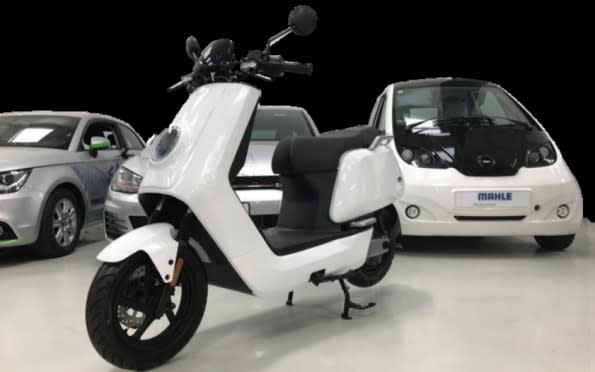Battery breakthrough promises superfast charging for electric cars

A new type of battery for electric vehicles that can be charged in the same time it takes to fill a car with petrol will be unveiled on Thursday.
If the technology proves viable, it could eventually eliminate the long waits to recharge that have proved a major deterrent for many car buyers.
Northampton-based Mahle Powertrain, which traces its roots to engine builder Cosworth, and Woking-based battery technology firm Allotrope Energy say their new lithium carbon batteries have the potential to combine the characteristics of fast-charging capacitors with those of traditional lithium-ion power packs.
This means they can be quickly recharged as well as offering sufficient "power density" even if it is only about a third of existing lithium-ion batteries.
The technology will be suitable for certain applications where a short range will suffice before returning to a charging base to be quickly repowered.
Full details of the technology will be unveiled at an electric vehicle show at Millbrook Proving Ground in Bedfordshire on Thursday, but its inventors say it could boost take-up of environmentally friendly vehicles.
Mike Bassett, head of research at Mahle Powertrain, said: “Range anxiety is often quoted as the main barrier to electric vehicle adoption, but if the battery could be recharged in the same time it takes to refuel a conventional internal combustion engine vehicle, much of that worry goes away.”
The companies are working on a study looking at how their system could be used to power delivery mopeds with small batteries, giving a 25km range.
They say a conventional lithium-ion 500 watt hour battery would not last a full shift and take 30 minutes to recharge.
However, a smaller battery using their technology could be recharged between stops in what they claim could be as little as 90 seconds.
Mr Bassett cautioned that although Mahle was working to design the battery packs that can be fitted into a moped using Allotrope’s technology, the research - which was funded by Innovate UK - is only at the concept stage.
Allotrope's batteries are not as "energy dense" as some other technologies, rival systems need cooling technology to be able to deliver the same performance, making them as larger overall..
However, Dr Pete Wilson, technical director at Allotrope, added: "Because our technology doesn't require complex thermal management systems adding bulk and cost, the overall battery pack can achieve the same capacity as traditional battery alternatives, all whilst allowing super-fast charging.
"As we learn more about the consequences of ultrafast charging we'll be able to move to smaller and lighter formats of the technology."
Added benefits of the companies' system include not suffering the “thermal degradation”, which means it performs the same at all temperatures, while its similarity to capacitors mean it lasts longer.
A final bonus is that their lithium-carbon chemistry means they use relatively common materials, rather than increasingly in-demand rare earth materials.
Added benefits the companies their system could deliver include not suffering the “thermal degradation” of current products, which means it performs the same at all temperatures, while its similarity to capacitors mean it lasts longer.
A final bonus is that their lithium-carbon chemistry means they use relatively common materials, rather than increasingly in-demand rare earth materials.
In May the International Energy Agency warned Western governments to build up supplies of rare earth elements or face troubles trying to tackle climate change.
The Government has already said it is investigating creating a national stockpile of rare earth materials in the face of increasing strained relations with China.
Professor David Bailey, an automotive expert at Birmingham University, said that if the technology could be proven in more applications it had the potential to revolutionise electric vehicles.
“Charging time is a huge issue and one which is holding up adoption of electric vehicles for many people," he said.
“But the real test is if this technology can be scaled up and made to work in the real world. There is lots of research going on into faster charging which function in the laboratory but don’t get to market because they can’t be scaled or are not commercially viable.”

 Yahoo Finance
Yahoo Finance 